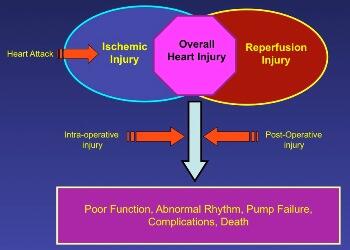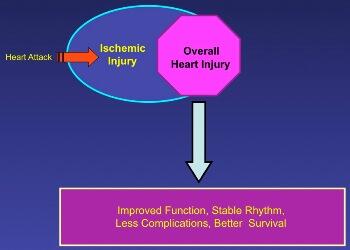March 11, 2013
VCU Researcher Working to Improve Patient Recovery after Heart Attack
Research focuses on specific drugs to reduce reperfusion injury
Share this story


Understanding the mechanism by which injury occurs in the body following a heart attack is the key in providing innovative ways to maximize patients’ survival.
In a series of three articles published in the Journal of Thoracic and Cardiovascular Surgery, Anwar Abd-Elfattah, Ph.D., professor of cardiothoracic surgery in the Virginia Commonwealth University School of Medicine, has focused on using specific drug therapies to reduce post-heart attack reperfusion injury.
A heart attack is triggered by a partial or total blockage of blood flow during which the heart undergoes major biochemical and structural changes, referred to as an ischemic injury, which leads to death if not resolved. Since it is difficult to predict when a heart attack will occur, the focus of heart specialists is to resume blood flow to the damaged heart by medications, catheters or to surgically bypass the blockage.
Resumption of blood flow also causes additional organ damage, or reperfusion injury, that might jeopardize patients’ recovery and survival. Abd-Elfattah has been studying specific drugs that prevent the formation and release of chemicals within the body believed to be responsible for triggering reperfusion injury. According to Abd-Elfattah, remarkable benefits of this drug intervention were found in reducing reperfusion injury and improving overall recovery of heart functions after a heart attack and prolonged cardiac surgery.
“It has been assumed that hearts undergoing cardiac surgery are completely protected with cold arresting solution, or cardioplegia. Our research provided evidence that this is not the case,” said Abd-Elfattah. “Rapid cooling changes cell membrane structure, properties and permeability, thus disrupting protective drugs from reaching their target proteins.
“The use of a warm water cardioplegia, called a hot shot, to deliver protective drugs to the warm heart before cooling is novel. The recovery of hearts treated with a hot shot is significantly better than the untreated group during warm or cold open-heart surgery,” Abd-Elfattah said. “In animal models, we were able to attenuate or abolish the reperfusion injury that causes poor cardiac performance, arrhythmias and death.”
Abd-Elfattah’s research was funded by the National Institutes of Health and the American Heart Association.
Subscribe to the weekly VCU News email newsletter at http://wp.vcu.edu/vcunews/ and receive a selection of stories, videos, photos, news clips and event listings in your inbox every Thursday.
Subscribe to VCU News
Subscribe to VCU News at newsletter.vcu.edu and receive a selection of stories, videos, photos, news clips and event listings in your inbox.






